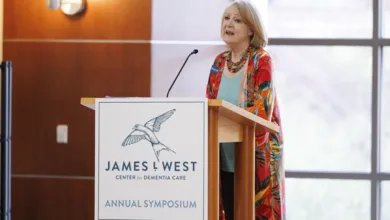Signs Aging Parents Need Help

Writing a book requires extensive research. The latest edition of my book, “The Complete Eldercare Planner, 4th Edition,” includes interviews with various experts. Doctors, fitness gurus, housing developers, lawyers, financial planners, and other professionals volunteered to help me keep my facts straight.
I also spent time interviewing people 20 and 30 years older than myself. I refer to them as my “living answers.” After all, who better to provide information about the future than the elders already living it?
During these interviews, I asked the elders a straightforward question: What first goes wrong when you’re old? Their number one response was some version of, “I’m running out of money.” Based on this consistent answer, any article that offers suggestions on finding out if parents need help must begin with learning how they intend to finance their long-term future.
The Most Telling Signs That a Parent May Need Help Often Become Apparent in Person
More than half of adult children in America help their parents with housework, errands, and home repairs, but what if you live far away from your parents? If you intend to be helpful one way or another, being of assistance always begins with an on-site home visit. Getting accurate or even truthful information from your elders over the phone or on a virtual Facetime meeting is impossible. Once you’re on their turf, you can witness changes in your parents’ physical appearance and behaviors and the condition of their home and car.

Signs to Look For
Things may look like business as usual at an arm’s length. Some changes are barely noticeable. Sharpen your observation and listening skills. Trust your instincts. Look for patterns that something’s not right:
Personal Care
- Can they manage to get dressed and bathe on their own?
- Do they have a medication management system in place?
- How’s their diet? Are they undernourished? Dehydrated? Losing weight?
- When was the last time they visited the dentist?
- Look for bruises on their arms and legs. Are they falling frequently?
- Are they drinking too much? Misusing drugs?
- How well are they sleeping?
Household Chores
- Is the laundry piled up? Dishes in the sink?
- Is the mail piled up? Are they able to manage bill paying?
- Is the house unusually cluttered and unclean?
- Open cabinets in the kitchen. Is there an ample supply of nutritious food?
Staying Active
- How often do they socialize with others?
- Are they isolated or lonely?
- Have they lost interest in hobbies and activities?

Forgetfulness
Forgetfulness and memory loss are not “normal” or expected aging outcomes.
- Are you observing patterns of forgetfulness?
- Are they are unable to recall information you shared only moments ago?
- Are you aware that they may be forgetting to attend medical appointments?
- Do you see evidence that they are having difficulty completing familiar and everyday tasks?
- Do they need help keeping track of the steps required to prepare a meal, make a telephone call, or play a card game?
It is important to note that many treatable health conditions mimic signs similar to dementia and Alzheimer’s disease. Lingering COVID-19 symptoms, medications, dehydration, alcohol abuse, depression, anxiety, heart problems, physical pain, low vision, and loss of hearing may also impair cognitive functions.
Forgetting to take medications or turn off the stove can have serious consequences. Forgetfulness also increases the risk of older adults being taken advantage of financially.
Are there safety nets in place that will help prevent financial exploitation? Living alone and early cognitive decline increases the risk of financial and physical abuse and neglect. Perpetrators count on vulnerable situations, such as the death or incapacity of a spouse or significant other, health challenges, and social isolation.

Seek Advice
The sooner you detect and discuss your observations with your aging parents, the better. It is best to seek help early, as it can save you heartache and money. However, it’s understandable that you may be hesitant about discussing sensitive subjects with your parents. If that’s the case, solicit the help of professionals to guide you.
Watching for signs and with forethought and planning, getting your parents what they need now and in the future is possible.





